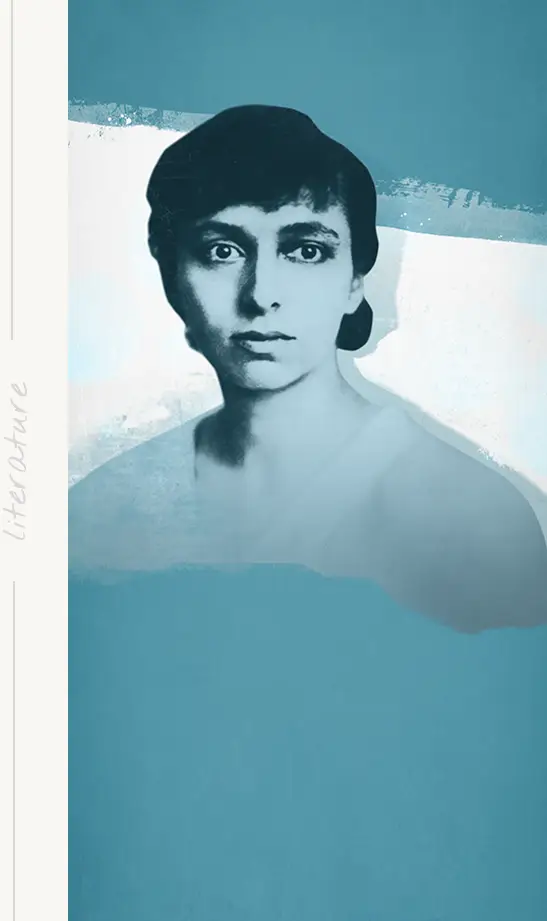
Gertrud Kolmar
10 XII 1894, Berlin — III 1943, KL Auschwitz-Birkenau
Gertrud Kolmar was a German-speaking modernist poet and writer whose writing reflects her sense of isolation and alienation. Her works are populated by figures of women and animals, and deal with themes of justice and salvation.
She was born in Berlin on 10 December 1894 to an assimilated German-Jewish family. The philosopher Walter Benjamin was her cousin. She was educated in private girls’ schools, including an agricultural school, and graduated from a women’s seminary for foreign language teachers. Her father, Ludwig Chodziesner, was a lawyer who persuaded her to publish her poetry. She made her début in 1917 with the collection titled Im Herbst (‘In Autumn’). Her artistic pseudonym “Kolmar” is taken from the German form of Chodzież, a town in Greater Poland, once the home of her father’s ancestors.
In 1938, another volume of her poetry, Die Frau und die Tiere (‘The Woman and the Animals’), was published by Erwin Löwe, a Jewish publishing house forced to close in the wake of Kristallnacht (Night of Broken Glass, 1938). A sense of isolation and alienation permeate, especially the poems that focus on such themes as salvation, justice, and metamorphosis, incorporating figures of women and animals. Kolmar’s poetry is compared to the works of French symbolists, but she is also classified as a representative of modernism, as seen in her modern and individualistic language. She also tried her hand at prose, publishing a novel titled Eine jüdische Mutter (‘A Jewish Mother’, 1931) and a short story Susanna (1940).
In mid-1941, Gertrud Kolmar was forced to work in an arms factory. On 27 February 1943, she was arrested by the SS, and on 2 March 1943, deported on the “eastern transport” to the Auschwitz-Birkenau concentration camp. It is assumed that her letters and personal documents were destroyed at that time. The exact date of her death is unknown.
creativity
creativity
Thoughts
translated into English by Andrzej Słomianowski
I’d like to sit at your bedside, very quietly,
as a humble mother
by her sick child.
There’s nothing I’d want to know, what I want is
to remain silent,
merely showing
how much I love you.
But if I came as a woman, people
would ill-treat me.
I’d rather transform
into a big, beautiful dog
with silken hair.
I’ll find your house, scratch
hard on the door until you open.
Then, quietly, I’ll curl up on the carpet
in front of your bed
and I lie there,
my ears between my paws.
When someone comes, I’ll growl;
but when we’re alone,
I lift my head now and then and I’ll look
at you for a long time
with wise, faithful eyes
The copyright owner of Gertrud Kolmar’s portrait is Yad Vashem.
Käthe Gertrud Chodziesner Kolmar, Yad Vashem, Hall of Names photos, Archival Signature: 15000/14121875
